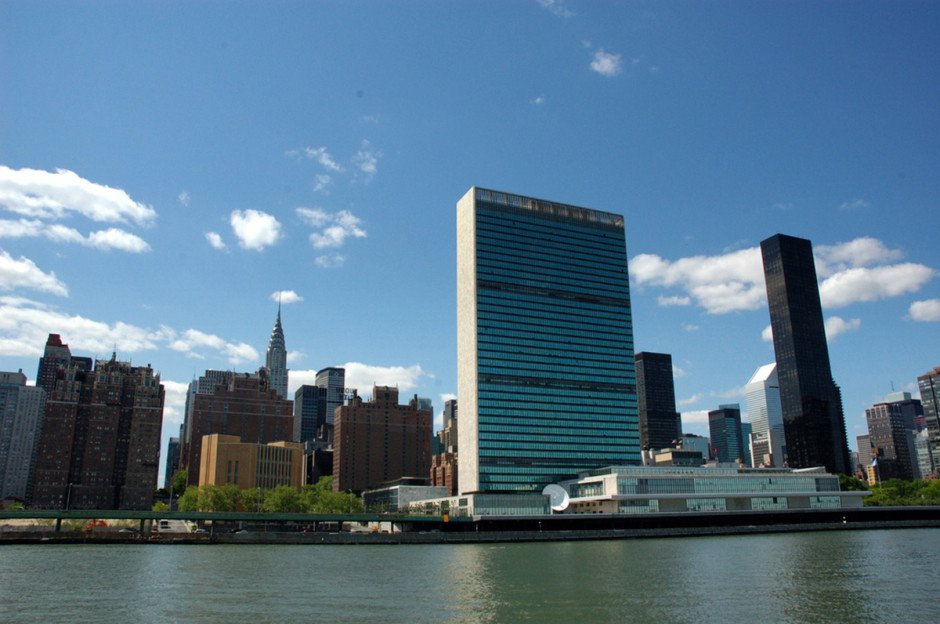For decades, Israel has yearned for recognition and acceptance from the Arab world and Palestinian Arabs. Until quite recently, this was not possible because Arab states and the Palestinian diaspora remained on a war footing and were obdurately opposed to recognizing and accepting the Jewish state.
In accordance with this mindset, the Arab League, at the Khartoum conference on Sept. 1, 1967, issued the infamous Three No’s: No peace with Israel, no recognition of Israel and no negotiations with Israel.

Taking their cue from the chorus of Arab rejectionism, Israeli leaders from Levi Eshkol onward launched the settlement project in the occupied territories, preferring to retain land rather than to trade it for peace.
Since the 1993 Oslo peace process, however, the mainstream Palestinian leadership, as exemplified by the Palestinian Authority, has reached a consensus that peace with Israel should be pursued on the basis of a two-state solution that enables the Palestinians to exercise sovereignty in the West Bank and the Gaza Strip.
Arab states have come around, too, judging by Egypt’s and Jordan’s peace accords with Israel in 1979 and 1994 and the Arab League peace proposals of 2002 and 2007, which Israel rejected for all intents and purposes.
As a result of this significantly altered political landscape, Israel’s call for recognition and acceptance has been finally heard and answered. The Palestinian Authority, which speaks for the majority of Palestinians, and the Arab League, which represents more than 30 nations, are ready to sign peace treaties with Israel.
It’s woefully true that extremist organizations — Hamas, Islamic Jihad, the Popular Front for the Liberation of Palestine, Hezbollah and the Sunni jihadists of Al Qaeda and Islamic State — remain committed to Israel’s destruction. But absent these radical circles, which are influential to some extent, the member states of the Arab League and the Palestinian Authority are politically and psychologically prepared to coexist with Israel. Given these fortuitous circumstances, Israel should seize the day and make peace with its Arab neighbors.

Similarly, Israel should have reacted positively to a United Nations Security Council draft resolution presented on Dec. 30 by Jordan on behalf of the Palestinians. Instead, Israel myopically declared victory after it had failed to pass muster.
The resolution needed nine out of 15 votes in the Security Council to be adopted. Eight countries — Jordan, Russia, China, France, Argentina, Luxembourg, Chad and Chile– voted in favor, while five nations — Britain, Nigeria, South Korea, Rwanda and Lithuania — abstained. Only the United States and Australia misguidedly voted against the motion.
Coming on the heels of Israel’s abortive peace talks with the Palestinian Authority, which collapsed last April after nine months of on-again, off-again discussions, the resolution seems eminently reasonable.
It calls for “a just, lasting and peaceful settlement of the Israeli-Palestinian conflict,” mutual recognition and an end “to all claims,” a “just and agreed solution” to the Palestinian refugee problem, the implementation of “security arrangements,” a halt to “all Israeli settlement activity and a complete cessation of “violence, incitement and terror.”
Under the resolution, Jerusalem would be the capital of both Israel and Palestine. Presumably, East Jerusalem and West Jerusalem would be the respective capitals of Palestine and Israel.
The resolution sets a one year deadline for negotiations with Israel and “a phased withdrawal of Israeli forces” to the June 4, 1967 lines by the end of 2017, with “mutually agreed, limited, equivalent land swaps.”
The strict timelines are important for at least two reasons. Israel’s dispute with the Palestinians has endured far too long already and should be settled as soon as possible. The issues are known and the solutions are clear. Open-ended talks are likely to drag on interminably, causing further mutual suspicion, mistrust and bitterness.
If both sides are ready for a historic compromise, which should be the case, the resolution provides a promising basis for rigorous negotiations and a successful conclusion.
Resolutions alone are no panacea, but talks without exacting and mutually agreed guidelines are bound to flounder.

Prime Minister Benjamin Netanyahu has expressed satisfaction that Jordan’s resolution failed to gain traction and move forward to the next level. He’s fooling himself. Israel’s victory at the United Nations should be seen for what it really is — a pyrrhic victory that will work against Israel’s vital interests.
As the U.S. ambassador to the United Nations, Samantha Powers, suggested right after the resolution was defeated, Israel would be foolhardy to interpret its demise as “a victory for an unsustainable status quo.” She added that continued Israeli “settlement activity” in the West Bank poses a threat to the prospects for peace.

These sentiments are widely shared in Europe.
Last month, the European Parliament supported a resolution backing in principle recognition of a Palestinian state and a two-state solution. Prior to this, the parliaments in six countries — Sweden, Britain, Ireland, France, Spain and Portugal — urged their respective governments to recognize a Palestinian state.
In another significant diplomatic rebuke to Israel, the body of the Fourth Geneva Convention declared that Israeli construction activities in the West Bank and East Jerusalem violate the Geneva Conventions, which, in part, govern the rules of a military occupation.
It’s obvious that Israel needs to revise its policy with respect to the West Bank and the Palestinians, the sooner the better. Israel is growing more isolated, and as 2015 dawns, it’s incumbent on the Israeli government to recognize reality and make the required adjustments.
Israelis and Palestinians should live in peace and prosperity within the framework of an equitable two-state solution. Anything short of that will jeopardize Israel’s status as a democratic Jewish state and cause further tensions in the region.
Israel should not find itself on the wrong side of history.
Jordan’s ill-fated resolution at the United Nations could have contributed to Israel’s peace and security and provided a measure of justice for the Palestinians. It should have been been backed by the United States and passed unanimously by the Security Council.
